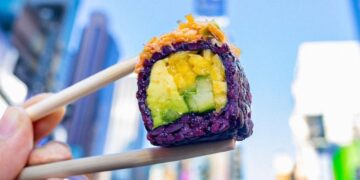[ad_1]
The proud capital of Catalonia, Barcelona not only has own independent-minded identity and language, but also boasts its own unique cuisine. Located in Spain’s north-east corner, the triangular-shaped autonomous community has long drawn influences from those it borders: the Mediterranean to the east, the Pyrenees mountains and France to the north and the rest of Spain to the west.
“In the Iberian Peninsula, three main ways of preparing food predominate. The south cuisine relies mostly on frying the ingredients, the north cuisine revolves around stewing and the regions in the centre of Spain tend to roast meat,” said Marc Casanovas, a Barcelona-based food journalist and the author of No Soy Uno de los Vuestros, about a Catalan chef. “In Catalonia, a highly industrial region, slowly stewing xup-xup, referring to the noise of slow-cooked recipes, is key.”
As Casanovas explained, “the harbours along the coast have traditionally brought exotic cuisine [to] Barcelona more than other regions of Spain” and seafood has historically been considered “nobler” than meat. These ingredients are often fused together in a slow simmer, with aubergines and tomatoes from the Llobregat river valley stewed alongside lobster or pork in a mar i muntanya (surf and turf) medley.
Today, if you push beyond the pre-prepared paella (which is better in Valencia) and sangria, visitors to Catalonia’s undisputed culinary capital will find dishes found nowhere else in Spain, like “fork breakfasts”, beef slow cooked in chocolate, grilled frog or spicy snails.
Here are five of Casanovas’ favourite places to eat.
[ad_2]
Source link






